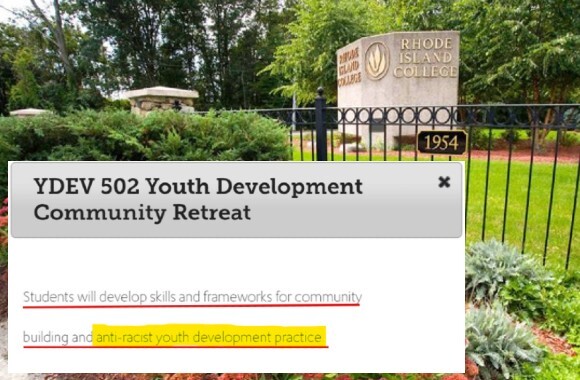Rhode Island
Throwback: 1994 Rhode Island Gubernatorial Debate

Thu, 07 Sep 2023 14:26:35 GMT (1694096795280)
f21546d3a7b92848c6890935ca4e2b625f015352
4a6d0bb8f30f1b6a167248fbd029e9fd6e7edbb4

Loading …

Rhode Island
Hackers worked undetected in RI’s benefits system for months before being found. What we know.
Inside the Rhode Island State House: Video tour
In 2024, tour guides gave more than 550 tours to more than 12,000 visitors from all over the world.
Journal Staff
- Cybersecurity firm Crowdstrike was unable to determine how Brain Cipher stole the credentials of a Deloitte employee
- Around 115,000 people whose data was believed to be stolen last year, and received state warning letters were probably not exposed, but 107,000 weren’t warned may have had data stolen
- Attorney General Peter Neronha is investigating whether the state will sue Deloitte
Hackers infiltrated Rhode Island’s public benefits portal in early July 2024, five months before the state was alerted about the attack and eventually shut the system down, according to findings from an investigation of the breach.
The hack resulted in the personal data of 644,000 Rhode Islanders being posted on the dark web, slightly fewer than the 650,000 initially estimated to be affected.
How did hackers get into the RIBridges system?
The group Brain Cipher gained access to the RIBridges computer network on July 2 of 2024 by getting the credentials of an employee of Deloitte, the contractor that runs the system for the state, the report from cybersecurity firm Crowdstrike said.
Crowdstrike was not able to determine how Brain Cipher got the Deloitte employee’s credentials.
Once inside the RIBridges system, the hackers worked undetected by Deloitte until early December, when the hackers contacted the information technology vendor and threatened to release personal information downloaded from the system.
Between November 11 and Nov. 28 of last year, Brain Cipher transferred large amounts of data from the RI Bridges system. After the hackers contacted Deloitte, the vendor told state officials about the hack on Dec. 4 and the system was shut down on Dec. 13.
RI in the early states of replacing, possibly suing, Deloitte
Gov. Dan McKee told reporters Thursday that Attorney General Peter Neronha’s office is now looking into a possible state lawsuit against Deloitte for failure to adequately protect resident data.
“Well, obviously we’re not pleased by it and we’re acting accordingly,” McKee said at a State House news conference. “That’s why the attorney general is looking into the implications there. I can say that under the circumstances … that this would be undetected for that period of time is something that is just unacceptable.”
The state is in the early stages of seeking proposals from vendors to replace Deloitte and the system, also known as the Unified Health Infrastructure Project, that has had numerous problems since it launched in 2016.
People who thought they were in the clear may have had their data stolen
The composition of the people whose data was stolen has also changed from last December when the system was shut down.
Around 115,000 people whose data was believed to be stolen last year, and received state warning letters, were probably in the clear, state Chief Digital Officer Brian Tardiff said.
On the flip side, 107,000 people whose data was not previously suspected of being stolen may have actually had their data stolen and will now receive a new round of warning letters.
Those newly discovered vulnerabilities include people who had were hired to new jobs and had their employment status verified by the Department of Labor and Training. A handful of people whose information was contained in child support database and whose filed passed through the Department of Children Youth and Families were also compromised.
Those who have data is exposed in the hack are eligible for free credit monitoring.
Tardiff said the state has not paid any ransom connected to the attack.
Rhode Island
Eleventh hour insurance bill could help top employer FM expand in R.I.

Rhode Island
Rhode Island College trains future childcare, youth camp workers in ‘anti-racist’ practices | The College Fix

Concerned parent says program is teaching ‘college students to use children as political tools’
Rhode Island College’s Youth Development program is facing criticism for teaching a social justice activism agenda, including a class on “anti-racist” practices.
However, the public college has not responded to multiple requests for comment about the program and the criticism it is facing.
Parental rights advocate Nicole Solas, a Rhode Island mother who was sued by a teacher’s union after asking to see her daughter’s kindergarten curriculum, recently called out the college’s degree program on X.
Solas believes the college should lose its federal funding as a result of the program, which she described as “the professional indoctrination of kids.”
“Rhode Island College is a public college doling out fake ‘masters degrees’ in political indoctrination of children, which is diametrically opposed to the priorities of the Trump administration’s @usdoegov…” she wrote.
In an interview Monday with The College Fix, Solas said the so-called “‘youth development’ curriculum is not education – it is a child activist indoctrination program pipelining college students to a progressive patronage network of non-profits.”
“This ‘youth development’ program is ultimately a political movement operating under the guise of ‘higher education,’ where children in school and after-school programs are used as tools for progressive political action,” she said in an email.
“For example, in the YDEV 353 Field Experience in Youth Development, students ‘complete 15-30 hours of fieldwork within an organization that serves children and/or youth,’” she said.
Students who complete the program may go on to have careers as a “Childcare Worker,” “Youth Minister,” “Camp Director,” or “Social Service Manager,” the college’s website states.
However, Solas said the college is really training students to become political activists.
“Using children for political activism does not serve children – it serves only the interests of the adults using them,” she said.
“Likewise, training college students to use children as political tools is not higher education. It’s a political grift co-opting public money earmarked for legitimate academic pursuits,” Solas told The Fix. “As a taxpayer, I should not be forced to fund my political opposition under the cover of ‘higher education.’”
According to the college, the Youth Development program is designed for “individuals working within youth development and/or youth-oriented social service organizations.” Classes will “equip” students with “skills … to lead, design, research and innovate in youth settings,” according to its website.
The program, which offers both bachelor’s and master’s degrees under RIC’s Department of Educational Studies, includes learning outcomes such as “Advocacy & Social Justice,” according to the master’s program webpage.
“Explore programming and policy through the lenses of power and difference in order to better understand how to build, sustain and lead positive communities with youth,” the learning outcome description reads.
The first courses specific to the Youth Development program were introduced for the 2014-2015 school year, according to The Fix’s review of past course catalogues. For 2017-2018, the program added an introductory course. The master’s degree was introduced for the 2019-2020 school year, and 10 more courses were created, The Fix found.
Courses for the 2024-2025 academic year included “Youth Development Community Retreat,” which teaches students to “develop skills and frameworks for community building and anti-racist youth development practice.”
Another RIC course, “Youth Development Community Retreat,” focuses on “anti-racist youth development practice.”
A DEI cult training seminar on anti-racist indoctrination of Rhode Island children. 4/6 pic.twitter.com/YHmy1zhTE7
— Nicole Solas, Sued by the Teachers Union (@Nicoletta0602) April 10, 2025
“Youth Social Policy and Action” is another course in the program in which students “will explore connections between policy and the lives of young people, focusing on how youth have engaged activist tools to develop, impact and reform public policy.”
For the course, students must be concurrently enrolled in “Youth Social Policy In The Field,” where they “work with a local [Youth Development] organization to understand their policy/activist agenda and collaborate on a youth social policy research project.”
The Fix emailed Victoria Restler and Leslie Bogad, professors and directors for the Youth Development program, as well as program Coordinator Rachel Clemons, multiple times for comment about the program and the criticisms it is facing. None responded.
The Fix also contacted college spokesperson John Taraborelli and the media relations office by phone and email several times over the past two weeks to ask about the program, but neither responded.
However, Jonathan Butcher, senior fellow in education policy at the Heritage Foundation, expressed criticism similar to Solas’s in a recent interview with The Fix.
Butcher described the Youth Development degree as “another grievance studies-style program that is commonly found at institutions nationwide.”
“The program description uses the radical buzzwords that have ambiguous definitions such as ‘social justice’ and ‘culturally relevant,’ which point back to critical theory, the Marxist philosophy that calls for repeated cycles of revolution against existing social and political structures,” he said.
“This program is particularly troubling because it is a training program for young people, teaching these hollow ideas to teens and youth,” he said.
“State lawmakers should defund programs such as this that focuses on racial favoritism and review the school’s alignment with state and federal civil rights laws,” Butcher said.
MORE: Florida university offers ‘hip-hop’ course on ‘black ratchet imagination’
IMAGE CAPTION AND CREDIT: The course description for a Youth Development course overlays a photo of the Rhode Island College campus. Rhode Island College
Like The College Fix on Facebook / Follow us on Twitter

-

 Austin, TX5 days ago
Austin, TX5 days agoBest Austin Salads – 15 Food Places For Good Greens!
-

 Technology1 week ago
Technology1 week agoBe careful what you read about an Elden Ring movie
-

 Culture1 week ago
Culture1 week agoPulitzer Prizes 2025: A Guide to the Winning Books and Finalists
-

 Technology7 days ago
Technology7 days agoNetflix is removing Black Mirror: Bandersnatch
-

 Education1 week ago
Education1 week agoUniversity of Michigan President, Santa Ono, Set to Lead University of Florida
-

 World7 days ago
World7 days agoThe Take: Can India and Pakistan avoid a fourth war over Kashmir?
-

 News7 days ago
News7 days agoReincarnated by A.I., Arizona Man Forgives His Killer at Sentencing
-

 News1 week ago
News1 week agoJefferson Griffin Concedes Defeat in N.C. Supreme Court Race



















